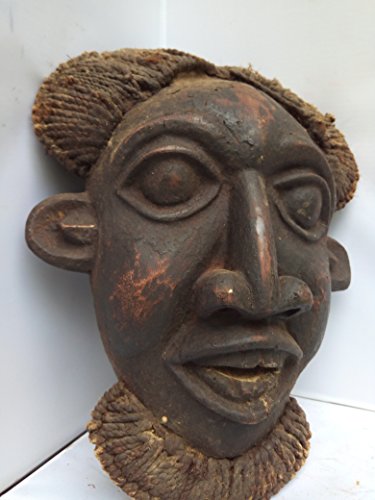Unique Antique Bamuleke " Bamun" Grassland/Cameroon Mask 17x11 in
In Bamileke (Mbalekeo, Mileke) territories, the fon entrusted the guardianship of the sculptures to certain members, for to spread around portions of the treasury was an insurance against the frequent fires. Masks that elicit fear and apprehension are the work of societies responsible for repression. In spite of the ethnic and stylistic variations found in the Grassland area, similar types of mask have been produced. All young boys belong to associations based on age classes, covering periods of five years each, focusing on military and technical apprenticeship. The various societies also had their masks; some of them, according the tradition, had been created and consecrated by the ancestors themselves, others inspired great fear, there were masks decorated with beads, copper, and cowrie shells. Most of the kingdoms used the buffalo, stag, elephant, birds masks, and masks presenting male and female human heads. They are usually worn during state ceremonies such as the funeral of an important dignitary, or during annual festivities. During these ceremonies, the leading dancer wears a n’kang mask which bears a false beard, a coiffure split in two symmetrical parts and is often covered in royal paraphernalia such as cowrie shells and beads. The n’kang mask is followed by other masks representing a woman, a man or an animal. The buffalo and elephant masks represented strength and power, and the spider mask, intelligence, but most of the meanings are now lost.

